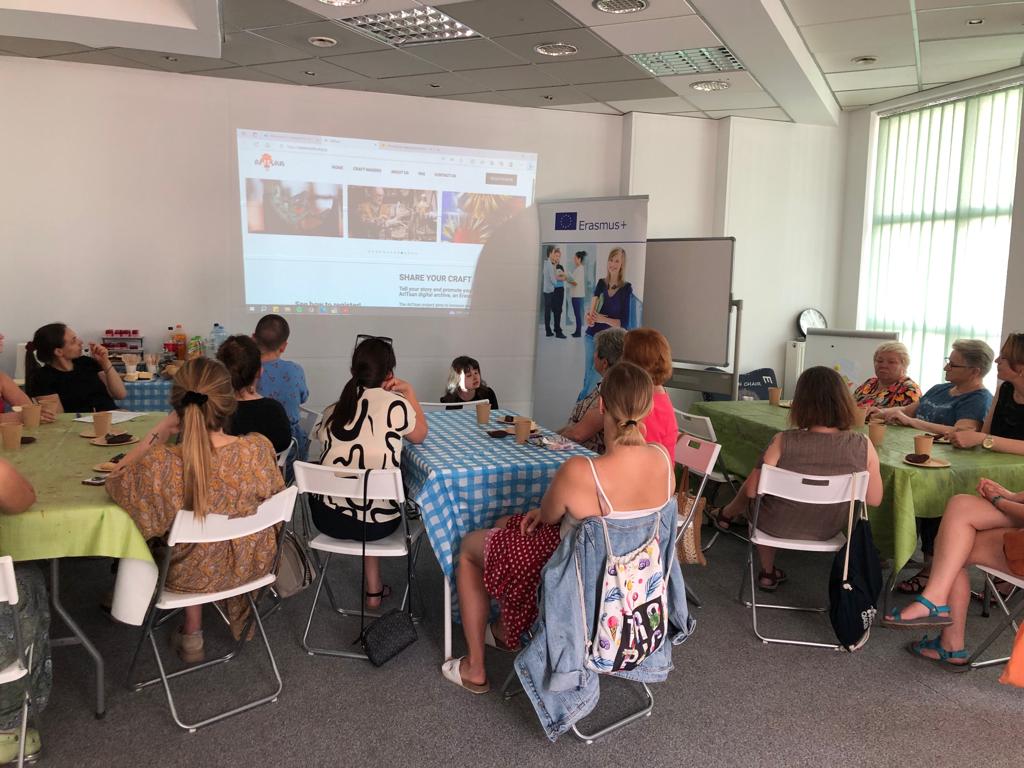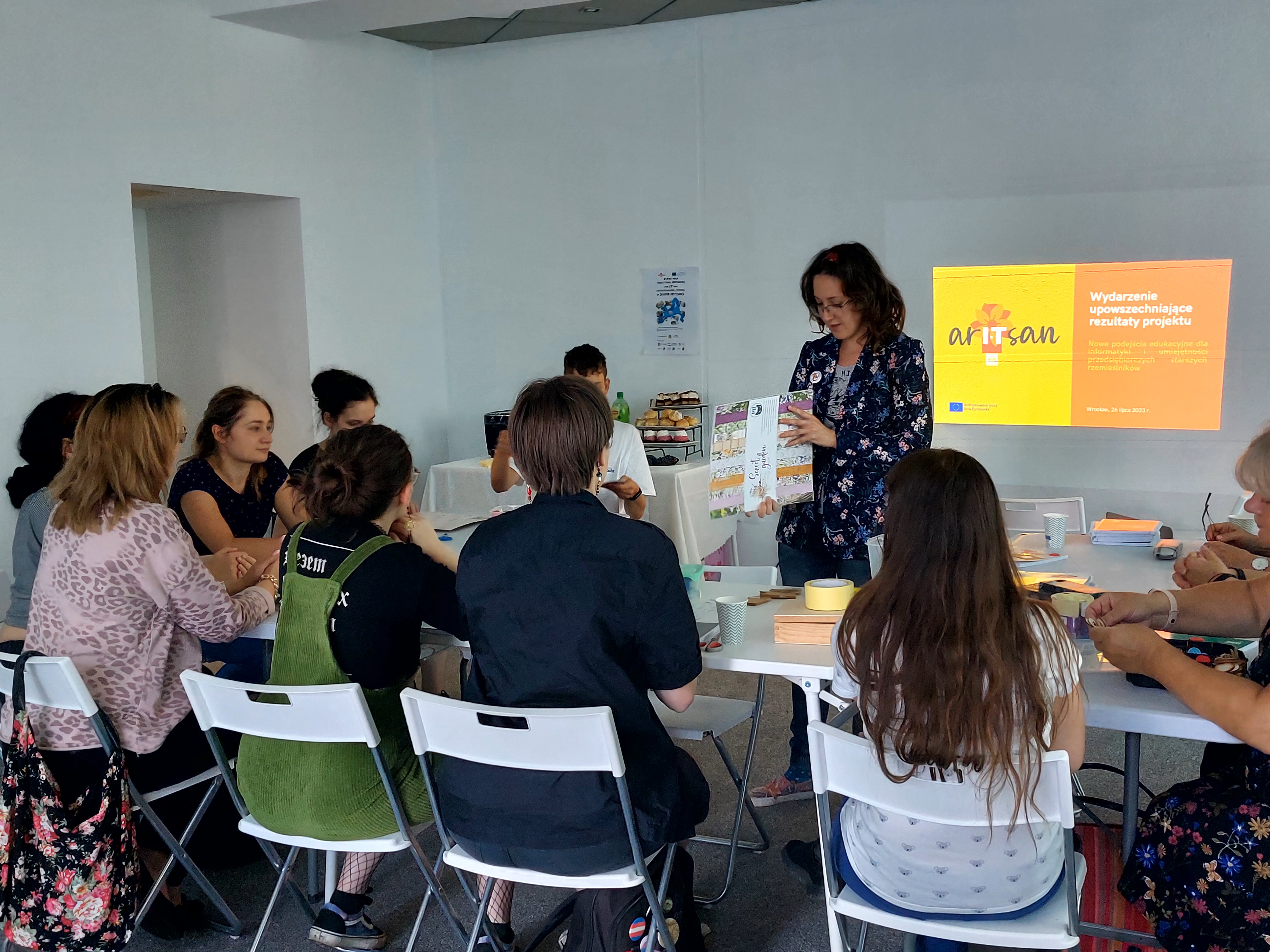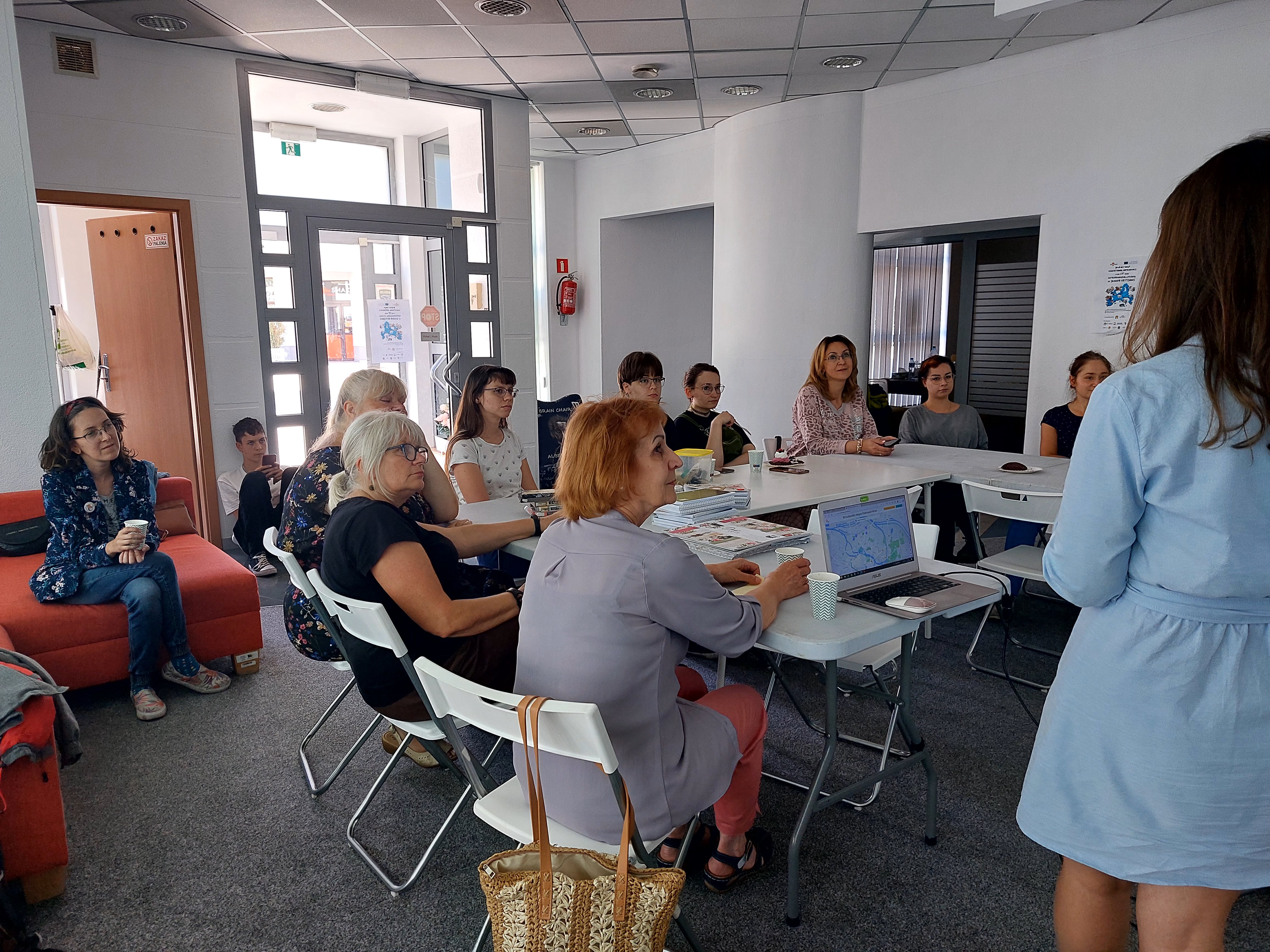National seminar ”Zaawansowana technologicznie przedsiębiorczość dla artisani”
As in al partners’ the multiplier event in Poland aimed to:
- promote the project, its website and intellectual outputs in Poland
- receive feedback on the criteria, indicators and use of the ”arITsan” framework and tools and on the structure, content and possible impact of the intellectual outputs
- involve local and national entities interested in development of crafts sector at local, national and European level and in adults’ education (particularly lifelong learning and seniors’ non-formal education – mainly for improving their entrepreneurial and ICT competencies and fostering their European identity and awareness) in project dissemination and exploitation of its results
- foster networking with stakeholders, to achieve a multiplier effect, motivating target groups to get involved in the ”arITsan Products” – Digital Archive (O3)
The event in was split in two days, because it wasn’t possible for Polish partner to gather 30 participants in one day so they decide to have two events with the same agenda. Both of them took part in Wroclaw, Wrocławskie Centrum Wspierania Organizacji Pozarządowych Sektor3
We paid a particular attention to the selection of participants in order to obtain a “snowball effect” – each participant to the event (both on 12 and 26 uly) was able to share the information to at least 5 other persons. So they had a proper mixture of representatives from public and private structures public and private structures interested in the topic of the project or connected topics as crafts sector development, small business, culture and traditions etc.
 The first event gathered 17 persons and the second 14 persons. Both events and took 6 hours (4 sessions of 90 min. each, 2 coffee breaks and one lunch break) according to the agenda from the application form
The first event gathered 17 persons and the second 14 persons. Both events and took 6 hours (4 sessions of 90 min. each, 2 coffee breaks and one lunch break) according to the agenda from the application form
First session (after participants’ registration) started with a speech of Mrs. Beata Partyka, CEO of CEBS and project manager of ArITsan in Poland. She welcomed participants, overviewed the agenda and set up the goals of the event.. Next Mss.
Paula Wiśniewska, from the project team, had a key note speech related to the project and the need to update senior artisans’ artistic skills with upskilling pathways for increasing their entrepreneurial and ICT skills, also on fostering their European identity and awareness. Then mrs. Partyka continued with a detailed presentation of IO1, as CEBS (and Beata herself) was the coordinator of this output.
In the second session we were invited participants to C1 – Marian Ferenc, C2 – Halina Miara and Maria Jedynak and C3 – Karolina Idasiak, who shared personal insights of their transnational experience. Then there were 1 professionals in adult’s education and 1 senior artisan who took part in the local piloting activities who told about their learning experienced and their impressions related to IO2 and IO3.
After lunch it continues with presenting the IO2 particularly the long path of change after each piloting activity – and IO3, with a demonstration of how to create an account.
The fourth session actively involved all participants split in 3 working groups – moderated by Marian Ferenc, Halina Miara and Karolina Idasiak, who tried to find possible applications of the project results, follow up activities and future projects. The most important conclusion of all working groups was that participation in transnational project is the best way to increase the European awareness and diminish the Euroscepticism at the level of seniors in general (al participants agreed that in Poland the EU sceptics are more than the EU average).
Last 30 minutes were dedicated to conclusions and future plans.
 We prepared the attendance list having already the confirmation from the participants (name, organisation, contact data, GDPR agreement). They completed the stakeholder list (described at the chapter related to dissemination) with participants who were not already on it.
We prepared the attendance list having already the confirmation from the participants (name, organisation, contact data, GDPR agreement). They completed the stakeholder list (described at the chapter related to dissemination) with participants who were not already on it.
3 days after the event CEBS sent to all participants an e-mail to thank for their participation and kindly ask them to fill the evaluation questionnaire. Processing these Nkey concluded that all of them appreciated the events in terms of content (topics, covered, speakers, the IOs quality, logistic etc.) – al participants scored ”excellent” or ”very good”. Some participants (6 persons) considered the report between presentations and practical activities as ”good”, the others gave also ”excellent” or ”very good”.
Also all participants agreed (8 participants ”strongly” agreed) that the project is a successful one. Also all participants agreed that the artisans (and anyone who creates hand made products) are an important part of national heritage and should be more promoted and encouraged, also that both public an private structures should work together to ensure that traditional crafts continue to thrive in the digital age.
